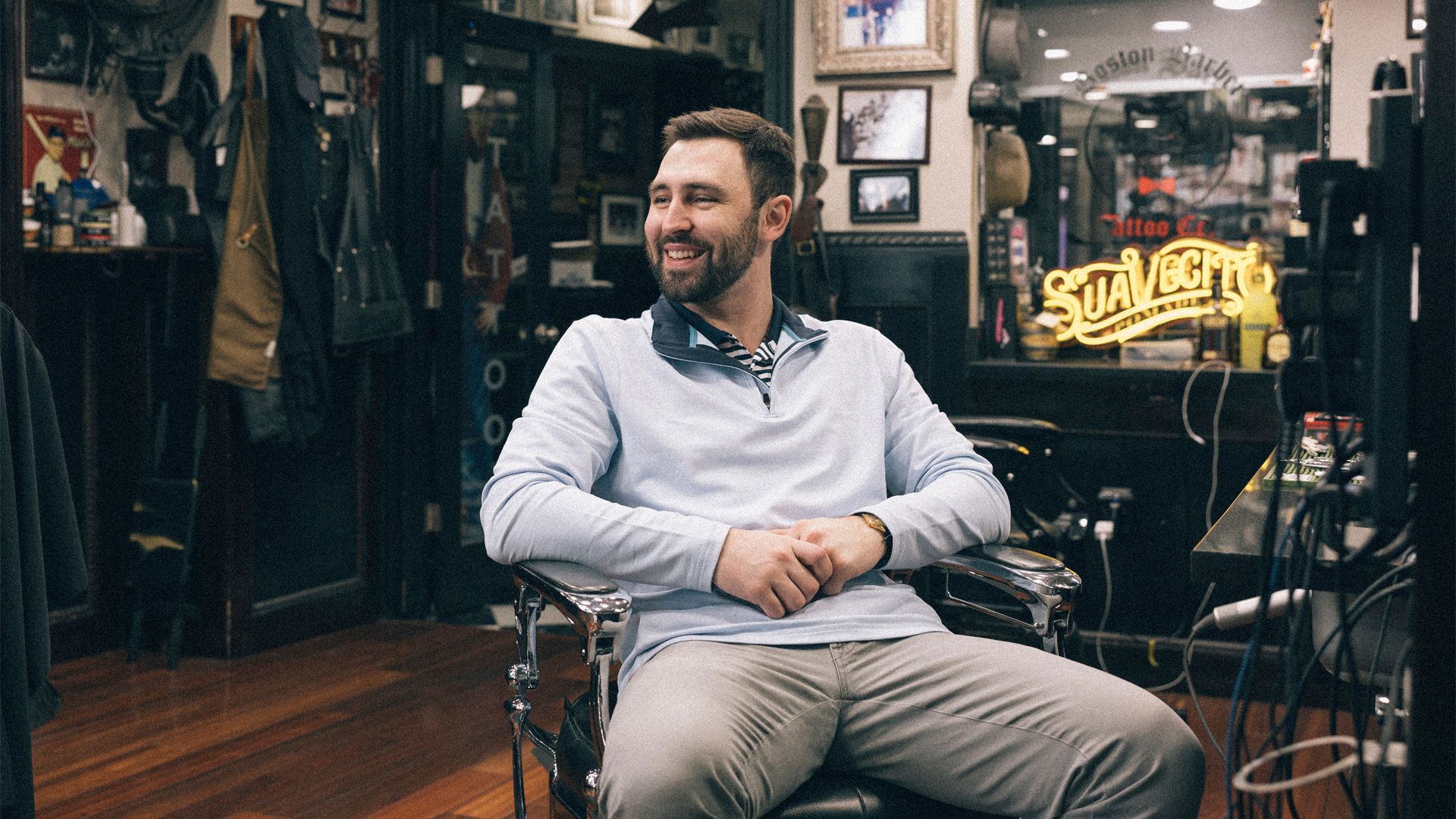

Matt’s story: Teaching the next generation that mental health matters
Why Movember matters to me
I had just moved in with some new roommates who had started going for runs in the neighbourhood. I didn’t want to miss out, but I didn’t have anything really to train for -- to get me out the door. That’s when I came across Movember on my Facebook. It said “Run or walk 60 miles for the month. 60 represents the men that die by suicide every hour.” 5 years earlier, one of my friends had died by suicide.I thought, “This is something I can do.”
My friend was somebody that you wouldn’t have ever thought was struggling with his mental health. He was on the cross-country team, swimming, track and field, theatre, class council. He was one of “the guys” at the school. But he was dealing with things that we, his friends, didn’t know he was dealing with. Now, every year, Movember is my chance to put it out there that people are dealing with things, and that it’s okay to ask for help. As a teacher, I want to teach these kids when they’re young, that it’s okay to be going through something, and if you are, it’s okay to reach out for help. Showing emotions is part of being human.
Running 60 miles for men's mental health with my students
“This is something I can do,” I told myself. That first year, I started running on my own. I’d do my 2 mile runs every day that November, letting people know I was running in honor of my friend. Later, in the spring that followed, I was coaching track. Some of the guys had seen my posts on social and were interested in joining the team. When the next Movember came around, I started building it up little by little. In addition to growing out my moustache, I tracked my miles on a whiteboard in my classroom. The kids would hold me accountable, asking if I got my miles each day. I took the opportunity to talk about what it was all about and why I was doing it.
The next year was when things took off. A student-led group that links seniors and freshmen were looking for things to get the kids involved. I told them about how I was planning to run again for Movember, for mental health, and we came up with the idea of doing our first walkathon. We hosted the walkathon at both high schools in town on the same day. The first year, the day of the walkathon happened to be my friend’s birthday, which made the day even more special.
Keeping the conversation going
From there, two of my students that I had in class and coached on the track team told me about their civics project for their history class. They wanted to talk about men’s mental health. They needed to come up with an idea for their action plan as part of their project. We came up with the idea of creating a Movember Club with myself as the club lead. Around that same time was when I was in the process of becoming a Community Ambassador for Movember, so the Club was a great idea to help to spread the message about the importance of mental health awareness.
We weren’t necessarily chatting about men’s mental health directly at every single one of those meetings, but they were making connections with each other and making the message clear: look out for your friends. The Club also helped to plan for the second annual walkathon, which raised funds for Movember and The Aaron T. Coty Memorial Scholarship. We hosted a moustache contest too, with students, teachers, and administrators competing to see who could grow the best Mo! Our Club also helped to plan our second Intro to Track & Field event for Mental Health Awareness Month that highlighted the benefits of youth sport for mental health. We had local mental health advocates on hand to talk about services that are offered locally.
The next generation of Mo Bros
To participate in the walkathon, the students need to get a parent signature. That’s at least 150 individual conversations, between the two schools, happening about Movember and men’s mental health at home. Each student paid a $5 registration fee and committed to raising an additional $20 with the help of sponsors. We had corporate sponsors that helped to offset the price of the walkathon t-shirts that each participant received. To get all these teenagers talking about their mental health now before they go away to school is huge. When we’re training or doing the walkathon, you’re connecting with friends. You’re talking to each other. It’s awesome to see all these kids from different backgrounds, all these different experiences, taking the time together to do something that’s bigger than themselves and building up these relationships and connections with each other. We’re building a community that they want to be a part of.
They may be kids now, but in 10, 20, 30 years from now, they’re going to be uncles and dads. What we’re doing with Movember isn’t just going to help these young men. It’s going to help everybody, the whole community, the whole society, because we’re going to make better husbands, boyfriends, fathers, and brothers.